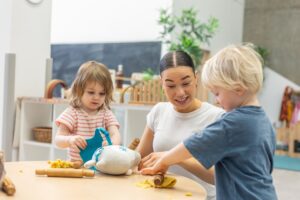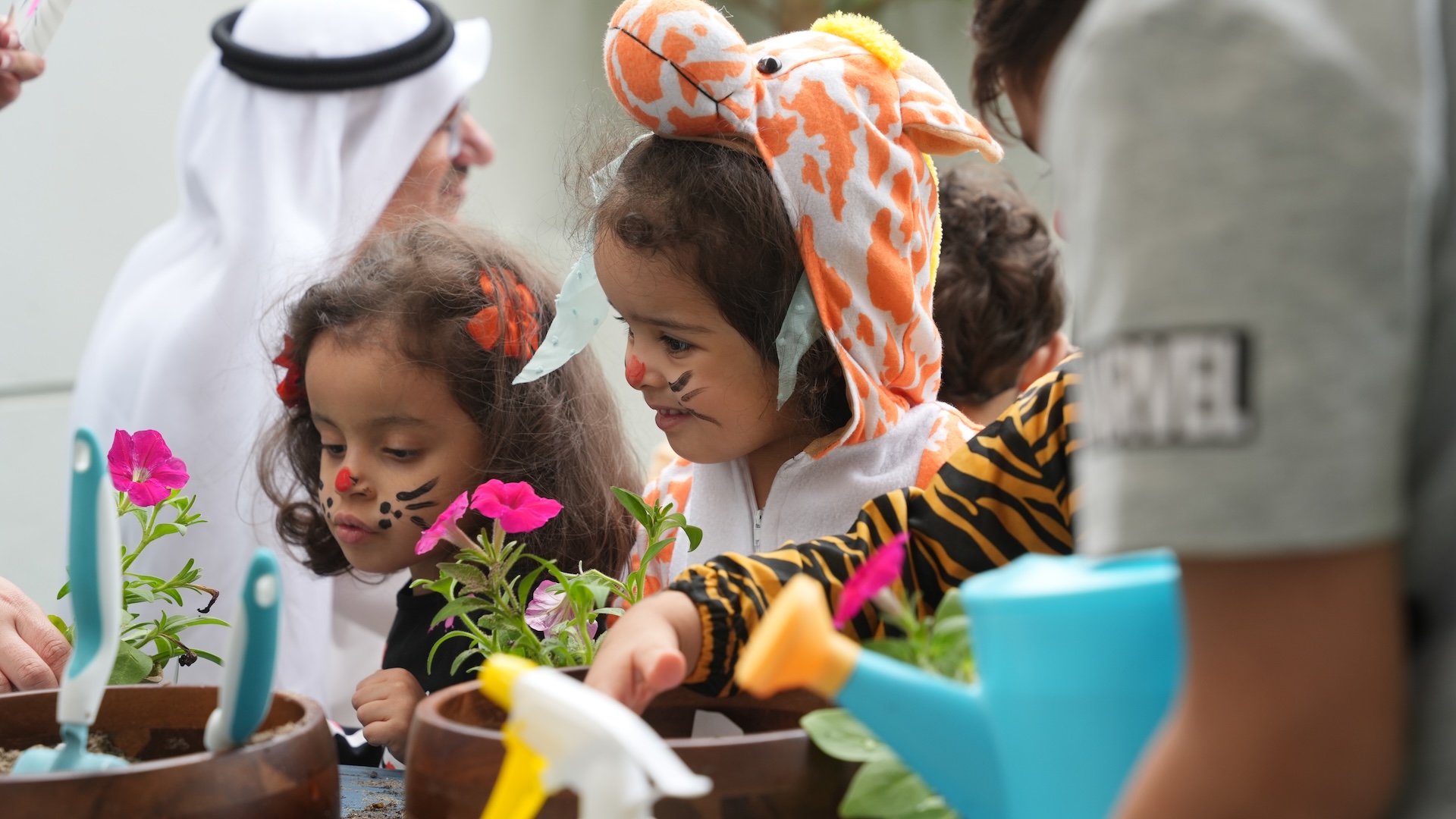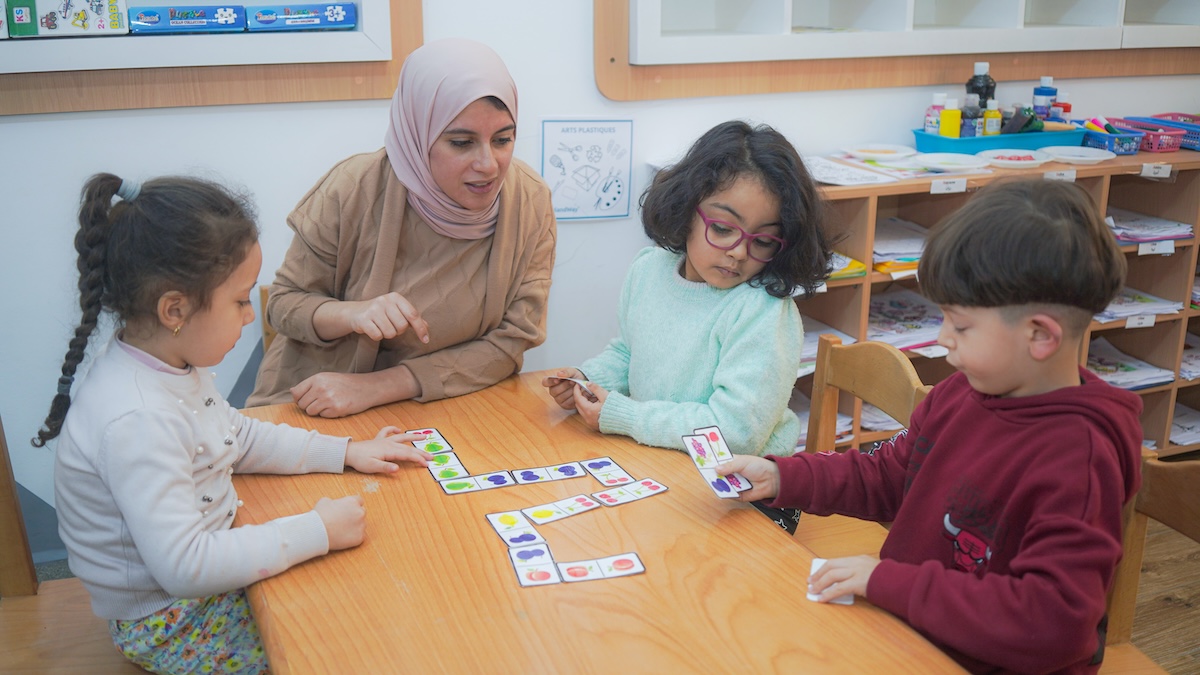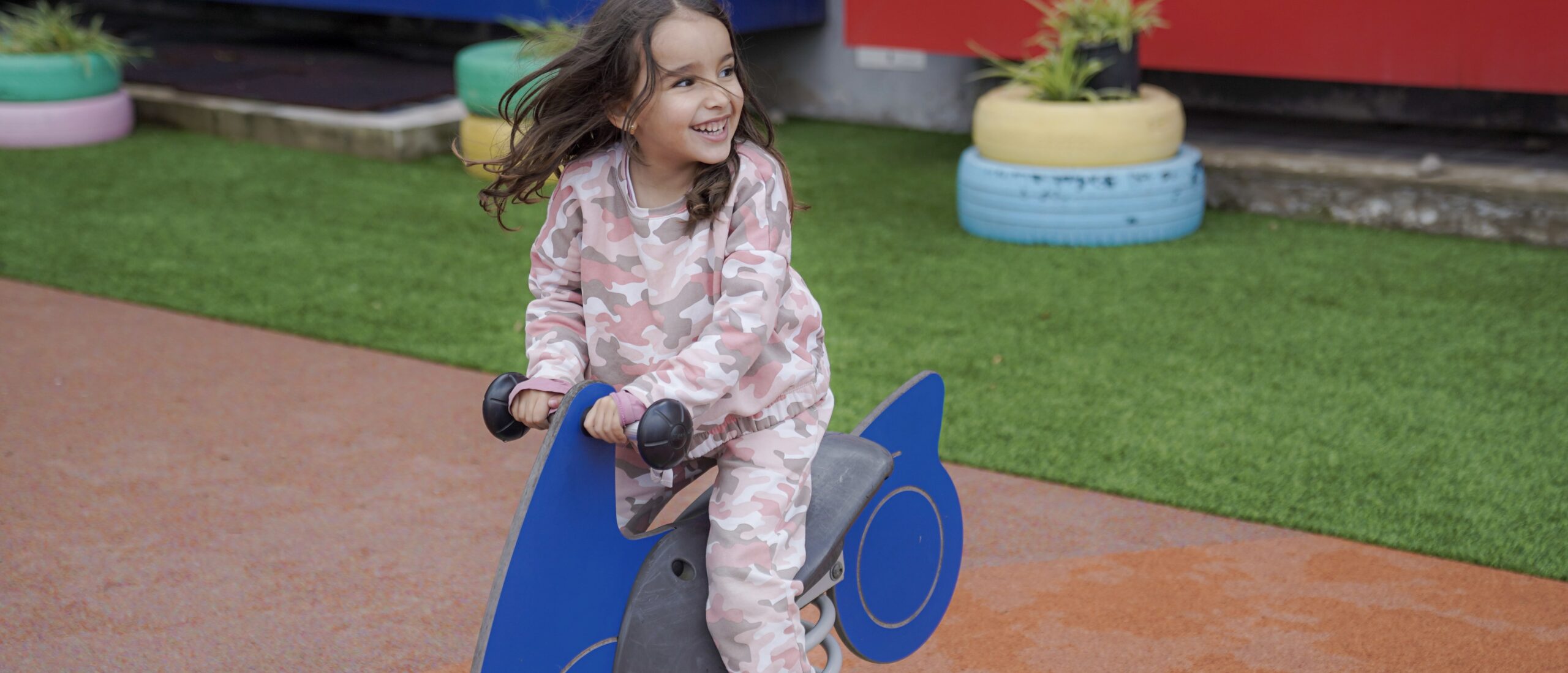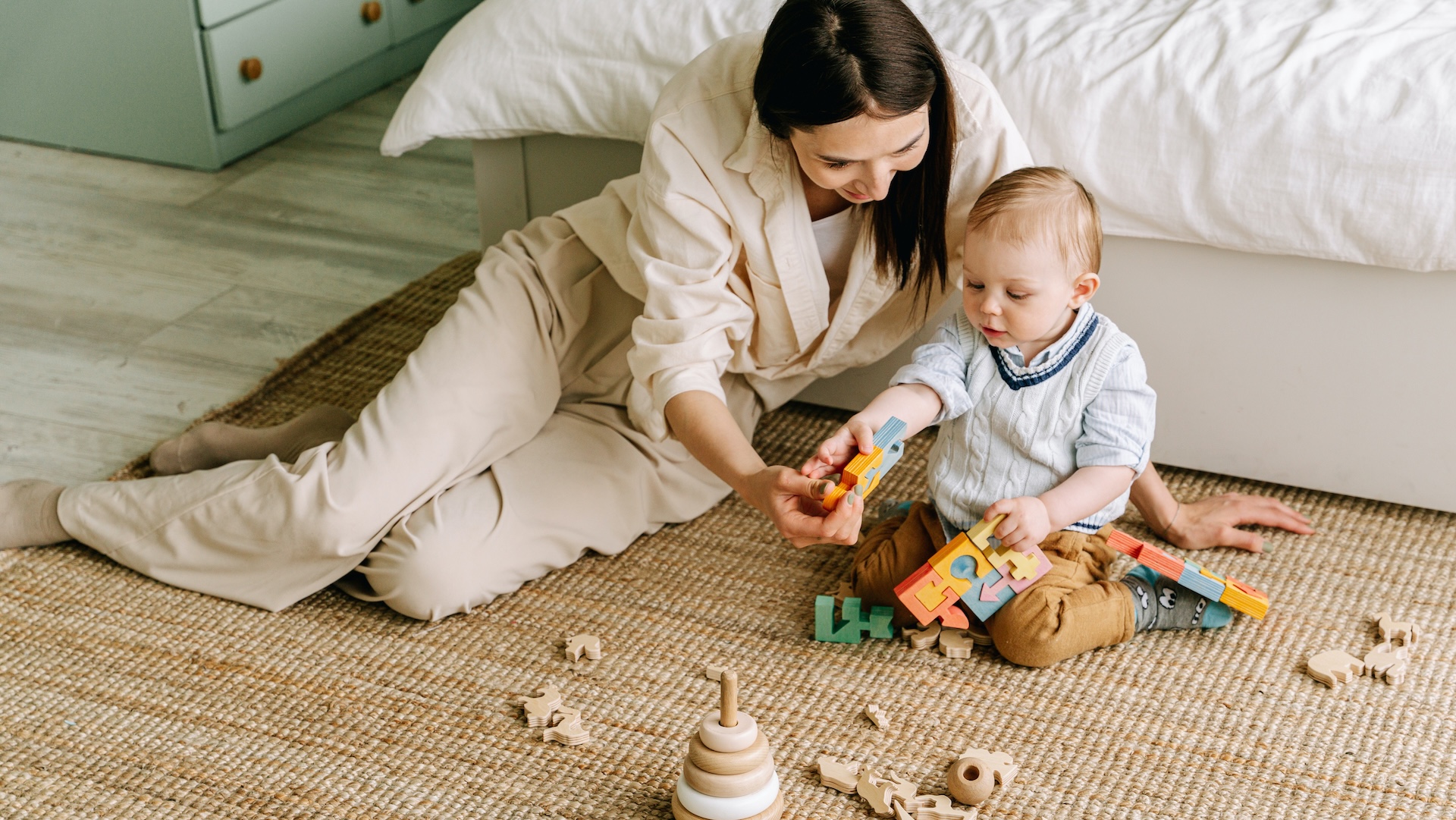The rise of play-based learning in early education
Preschool is often a child’s first step into the world of structured learning. But more and more schools today are asking a bold question: does learning always need to be serious? Around the world, we’re seeing a growing movement towards playful preschool programmes—educational settings where curiosity, creativity and fun lead the way.
But are these programmes actually effective? Do children really learn through play? And how can we ensure quality and structure while keeping things joyful?
One trusted answer comes from FinlandWay Schools, a globally respected network of early childhood centres inspired by Finland’s world-renowned education system. Their approach combines play with purpose, and it’s helping children thrive in countries from the Middle East to Latin America.
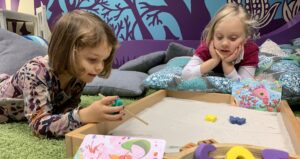
What are playful preschool programmes?
Key features of play-based programmes
Playful preschool programmes are built on the idea that children learn best when they are engaged, happy, and exploring. Rather than relying on strict routines or academic worksheets, these programmes use teacher-guided and free-play, games and creative activities, hands-on materials, and open-ended activities to support learning in a natural way.
Common features include:
- Child-led learning and self-discovery:
- Integrated skill development (e.g. social, emotional, motor)
- Minimal worksheets, maximum hands-on play
- Educators acting as guides, not lecturers
- Emphasis on wellbeing: Arts, music, movement, and storytelling are essential tools. Social-emotional learning and wellbeing are prioritized over measurable academic outcomes.
At FinlandWay Schools, play is not a break from learning – it is learning. The curriculum is designed to spark joy while building real, measurable skills in language, maths, science, and life readiness.
How they differ from traditional models
Here’s a quick look at how playful preschool programmes differ from more conventional setups:
| Feature | Traditional Preschool | Playful Preschool |
| Teaching style | Teacher-led, structured | Child-led, flexible |
| Focus | Early academics | Holistic development |
| Learning tools | Books, worksheets | Toys, nature, games |
| Assessment | Tests, drills | Observation, portfolios |
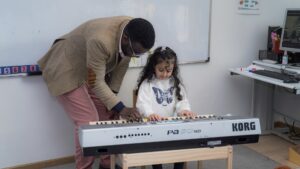
Are playful preschool programmes effective?
What the research says
According to reports from the OECD, UNICEF, and Harvard’s Graduate School of Education , children in play-based environments show strong outcomes in both cognitive and emotional development. They become better problem-solvers, more resilient learners, and more collaborative with peers.
Finland, ranked among the top globally in education, has been championing this approach for decades. FinlandWay Schools adapts this model worldwide, offering the same evidence-based methods in diverse cultural settings.
Real-life success: The FinlandWay approach
Operating in over 10 countries, FinlandWay Schools blends Finnish pedagogy with local contexts. Their programme:
- Follows the Finnish National Core Curriculum for Early Childhood Education
- Trains the local teachers to latest methods and designs from Finland
- Enables bilingual delivery
- Relies on continuous pedagogical observation to personalise learning
- Balances structure and freedom to build independence and confidence
Parents across regions consistently praise the results: confident, creative, happy children who love going to school and can express their needs and emotions.
Since our son started in the FinlandWay® programme he has started to trust himself more and make his own decisions. He has a very good relationship with his friends and he loves school.
- Parent, GSB FinlandWay, Marrakesh
Benefits of playful preschool programmes
Holistic child development and wellbeing
Children in play-based settings grow not only intellectually, but also emotionally and socially. Programmes like FinlandWay’s encourage:
- Communication and language growth through storytelling and pretend play
- Fine motor skills via puzzles, drawing, crafts and building
- Critical thinking through interaction, asking questions and making learning participatory
- Emotional expression through roleplay, art and discussions
School readiness without the pressure
Unlike strict academic-first models, playful preschool programmes build skills at a pace that suits the child. This results in:
- Fewer behaviour issues as children get to move around instead of sitting in front of a table.
- Greater motivation to learn, as learning is fun and meaningful for the children.
- Children learn to organise themselves and take responsibility, this makes the transition to primary school smoother.
FinlandWay children develop self-regulation, responsibility, and resilience, all key traits in the 21st century.
Real-life applications
In play-based preschool programmes, learning is not confined to formal lessons, a skilled teacher sees opportunities for learning at every moment. Children use language, numbers, and reasoning naturally as they engage with their environment and peers.
Practical life tasks, such as setting the table, tidying up, or preparing snacks, help children develop independence, sequencing skills, and an understanding of routines. These activities reinforce counting, sorting, following instructions, and using descriptive language.
Group play brings real opportunities for applying social and emotional learning. Children negotiate roles, solve disagreements, and plan together, which builds cooperation, empathy, and problem-solving in real time. They learn to take turns, express needs clearly, and listen to others—skills that directly support future classroom success.
Even in pretend scenarios, like running a shop or playing ‘family’, children draw on early maths (e.g. numbers, sizes, money concepts), literacy (e.g. signs, lists, storytelling), and science (e.g. cause and effect, materials, the natural world). These moments connect abstract ideas to meaningful, familiar experiences, reinforcing understanding in a lasting way.
Challenges and criticism of play-based programmes
Parental expectations and cultural pressures
In some cultures, there’s pressure to begin academics early. Parents may worry that playful environments lack “real” learning, especially if large quantities of worksheets are seen as merits and learning results. FinlandWay addresses this through:
- Transparent communication with families
- Regular progress updates through the FinlandWay mobile app.
- Evidence-based reassurance that their child is learning meaningfully instead of just rote learning.
Tracking progress without tests
One common question parents ask is: How do you know what children are learning if there are no grades or exams?
Play-based programmes like FinlandWay use assessment methods that are ongoing, child-focused, and aligned with each child’s developmental stage—without putting pressure on them or comparing them to others. Progress is tracked in the following ways:
- Continuous observation and reporting
Educators observe children during their everyday activities, play, and interactions. These observations give insight into how children apply skills, solve problems, and engage with their environment. Progress is recorded regularly and shared with families in clear, practical terms. - Portfolios of children’s work
Each child builds a portfolio over time, including drawings, photos, writing samples, and other creative outputs. This tangible collection allows both parents and educators to see how the child is developing across different areas—from fine motor skills to storytelling and emotional expression. - Strength-based developmental assessment
Rather than focusing on what a child can’t do, assessment is based on what a child can do, and how they are progressing toward science-based, age-appropriate learning goals. Children are never compared to one another, instead, the focus remains on individual growth and readiness for the next stage of learning.
These tools offer a full picture of a child’s development, without stress or comparison.
What makes a quality preschool programme?
Why FinlandWay is a trusted global leader
- Research-backed Finnish methodology
- Trained educators with ongoing professional development
- Safe, creative environments tailored to local cultures
- Emphasis on parent-school collaboration
Graphic idea:
Map showing countries where FinlandWay operates (e.g. UAE, Brazil, Morocco, Argentina)
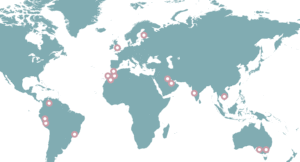
Trusted resources for further reading
- BBC Tiny Happy People – Child development tips and tools
- Harvard Graduate School of Education – Research on learning and the brain
- The Guardian – Education – UK and global early years education news
- FinlandWay Schools – International play-based preschool network
FAQ – Preschool programmes and play-based learning
Q1: Do playful preschool programmes really teach anything important?
Yes. Research proves that children build strong foundations in literacy, numeracy, and life skills through play.
Q2: How does FinlandWay measure success without testing?
Through ongoing observation and documentation, portfolios and strength-based pedagogical assessment.
Q3: Is play-based education too relaxed?
Not at all. For children play is learning and formal learning should be embedded into play for optimal results. FinlandWay blends structured guidance with freedom, ensuring children stay challenged and engaged.
Conclusion: Play works—When it’s purposeful
So, are playful preschool programmes good? Absolutely—but only when they are well-planned and supported by qualified educators. That’s why FinlandWay Schools is a standout example, combining joy and learning in a way that prepares children for life—not just school.
If you’re a parent, educator, or school leader seeking a balanced, future-ready solution for early education, FinlandWay Schools is a brilliant place to start.
